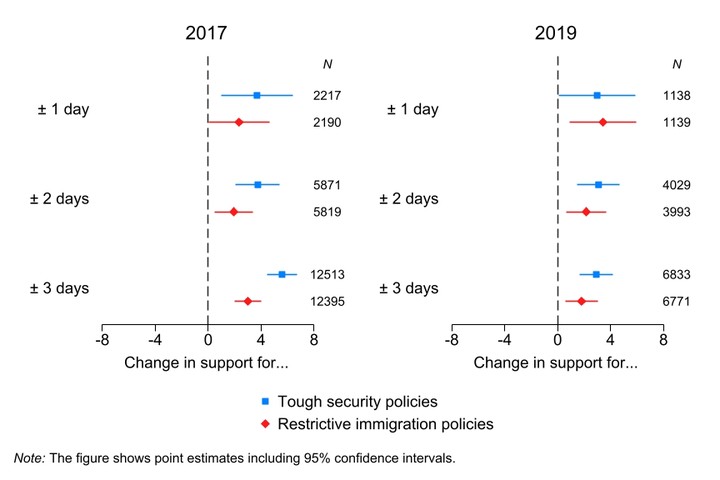Does Islamist Terrorism Still Affect Political Attitudes?
 Effects of the London Bridge attacks on security and immigration preferences
Effects of the London Bridge attacks on security and immigration preferences
Abstract
This study revisits the question whether contemporary Islamist terrorist attacks affect citizens’ political attitudes by leveraging two natural experiments in the United Kingdom. The natural experiments emerged as the fieldwork periods for a popular online voter information tool coincided with both the 2017 and the 2019 London Bridge attacks. Because thousands of voters provided their political opinions via the tool every day around the time of the attacks, we can more precisely estimate the causal effects of the attacks on policy preferences. We find that both the 2017 and the 2019 London Bridge attacks increased support for restrictive security and immigration policies. The effect estimates pass a series of plausibility and robustness checks. This suggests that contrary to recent theorizing and empirical evidence, Islamist terrorism continues to evoke cognitive and emotional reactions which are sufficiently strong to affect political attitudes. Finally, in additional analyses we re-test two prominent hypotheses about individual-level causal heterogeneity: the reactive liberals and the geographic proximity hypotheses. Contrary to these hypotheses, we find no evidence that the effects of the London Bridge attacks were moderated by individuals’ ideological predisposition or their geographic proximity to the attacks.